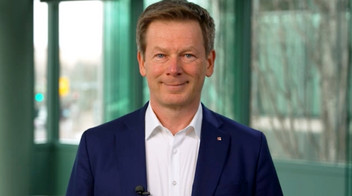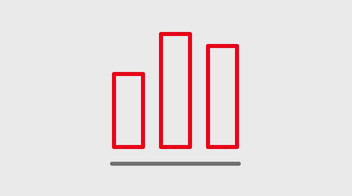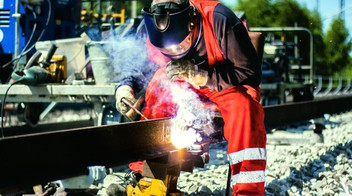Environmental measures
With its responsibility for the track infrastructure, DB Netze Track forms the backbone for a shift in the mode of transport to rail in Germany. In order to sustainably support this role, DB Netze Track is stepping up its efforts to protect the environment.
- In addition to continuing noise reduction activities, the focus in 2023 was on resource conservation targets for the recycling components of our central resources rail steel, concrete ties and track ballast. A challenging ramp-up target regarding the use of recycled quantities by 2030 was established for each resource. The key figures and the process for recording quantities have been defined.
- We are working hard to achieve the climate protection target by refitting all fossil-fuel-heated sites that will still be needed in 2040. In 2023, 14 heating systems were converted to a climate-friendly solution. For example, oil heating systems were replaced by heat pumps in four smaller interlockings in Cologne Eifeltor, and the existing facilities in the interlockings in Fischbach and Marktredwitz were replaced by pellet heating systems. A plan for refitting additional affected heating systems is currently being developed on the basis of our sample energy supply concepts.
- High-performance photovoltaic systems were built at three plant locations (Nuremberg, Duisburg and Karlsruhe), which make a significant contribution to meeting the respective electricity demand. The largest facility – with almost 340 kilowatt peaks (kWp) – is in operation in Nuremberg and is expected to generate about 315 MWh each year.
- In the “Rail map to climate-neutral track infrastructure” project, we examined and evaluated the topic of climate-relevant emissions from the construction and maintenance of infrastructure. To this end, we made a first rough estimate of current emissions and discussed various decarbonization pathways, taking into account volume accelerations in the raw materials and construction industry. Research and pilot projects also investigated possible implementation of green construction procedures and materials.
- As part of the Railway Construction Initiative for the Future (Zukunftsinitiative Bahnbau; ZIB), we have initiated the “Green planning, construction and operation” cluster with partners from the planning industry, building associations and the rail construction industry. In five different clusters, we collaborate on topics such as increasing the recycling rates of rail construction materials, suitable ways to determine and evaluate CO₂e emissions, and the necessary initiatives for the further education and training of our employees regarding green construction.


